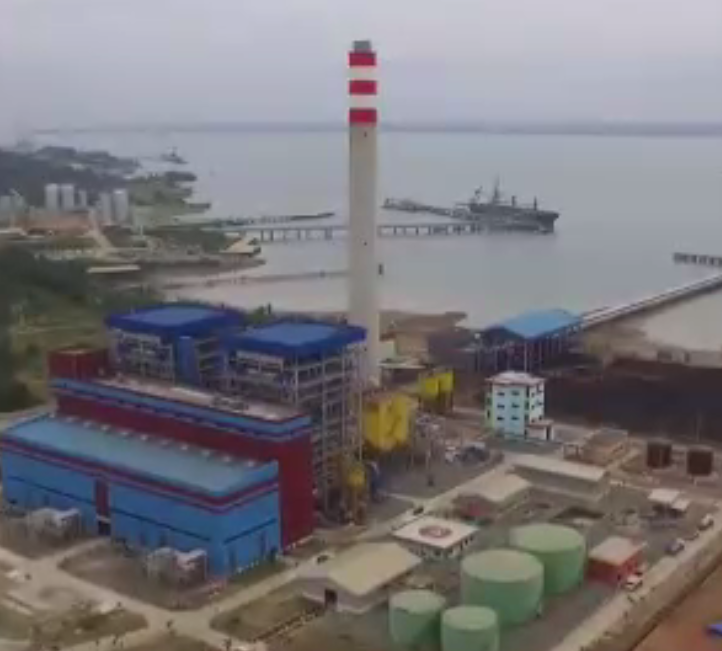
STRATEGIC ASSESSMENT. The Comprehensive Investment Plan (CIP) for the Just Energy Transition Partnership (JETP) energy transition funding is still being intensively discussed. According to reports, this investment plan will be announced in August 2023.
Energy and Mineral Resources Ministry Director General Jisman P. Hutajulu stated JETP’s comprehensive investment plan which discusses retiring coal-fired power plants and electricity transmission network projects is still being discussed intensively.
Center for Strategic and International Studies (CSIS) researcher Novia Xu in a discussion on the “Risks and Challenges of JETP Implementation” held by the CSIS in Jakarta said that the Just Energy Transition Partnership (JETP) funds were too low for Indonesia’s energy transition.
The JETP grant is only $160 million or around 0.8 percent of the total promised funding of around $20 billion. In fact, Novia said, grant funds are important to finance the preparation of energy transition projects, including feasibility studies, training of workers, and various risk mitigation programs for an equitable energy transition. “The grants that are too low have the potential to burden the state revenue and expenditure budget (APBN),” said Novia.

The JETP Secretariat in Indonesia has agreed on the target allocation for JETP climate funding to accelerate the electrification sector and energy efficiency, said JETP Secretariat Chair Edo Mahendra while speaking at a public discussion “Risks and Challenges of JETP Implementation” at the CSIS. This decision was the result of an internal agreement of four working groups within the JETP Indonesia Secretariat.
The five working groups have various tasks, including technical issues, policies, funding, just transitions, as well as electrification and energy efficiency. “One thing we have agreed on is electrification and energy efficiency; the focus is on the end user sector,” said Edo.
The Energy and Mineral Resources Ministry noted that Indonesia is the third largest biofuel-producing country in the world after the United States and Brazil. Ministry Director Yudo Dwinanda Priaadi said that Indonesia produced 174,000 barrels of oil equivalent per day (BOEPD) of biofuel in 2021.
With a production of 643,000 BOEPD in 2021, the United States was the world’s largest producer of biofuels, according to the BP Statistical Review of World Energy 2022. Brazil came in second with 376,000 BOEPD.
According to Scot Marciel, Oksenberg-Rohlen Fellow at Stanford University’s Shorenstein Asia-Pacific Research Center and Senior Advisor at BowerGroupAsia. He served as U.S. Ambassador to Indonesia in 2010-2013, Indonesia’s $20 billion Just Energy Transition Partnership (JETP), announced last November by U.S. President Biden, Indonesian President Jokowi , and Japanese Prime Minister Kishida Fumio, is reaching an early critical juncture. The stakes involved are high, encompassing climate change, economics, U.S.-Indonesian relations, and geopolitics. If the partnership succeeds, Indonesia – one of the world’s largest greenhouse gas emitters – will be on a path toward significantly reduced emissions.
For Indonesia, JETP provides an opportunity not only to shift away from dirty coal power but also to enhance its attractiveness as an investment destination. Although Coordinating Minister Luhut Panjaitan, who has been overseeing its implementation, has sought to put all the pressure on the IPG, saying “we don’t lose anything if the deal doesn’t materialize,” a failed deal would mean Indonesia leaving billions of dollars on the table, and would reinforce perceptions that it is a difficult place to do business. The stakes for the United States are equally high. Washington led the negotiations and will get much of the credit or blame for JETP’s success or failure.
Given the stakes, Jakarta and Washington need to redouble efforts to move the partnership forward. For Indonesia, that means completing an investment plan with bankable projects, offering regulatory reform to make renewable energy investments more attractive, and addressing the contracts behind the current energy surplus. It also will mean accepting less concessional financing than it wants. For Washington, it involves quickly demonstrating that it and its IPG partners will meet their financing commitment with reasonably concessional terms and clarify the mechanism for accessing the JETP funds.





